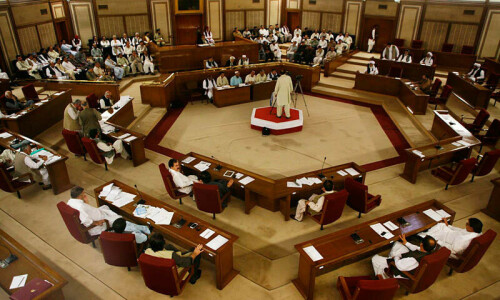NAIROBI: Barely hours after a truce agreed to by South Sudan’s president and rebel leader came into force late on Saturday night, their rival armies were back at war.
At dawn on Sunday, fighting erupted along several frontlines in the oil-rich north, with the two sides trading artillery fire and ground attacks, as well as angry recriminations over who fired first.
Regardless of who is to blame for the ceasefire breach — the second time in the five-month conflict that a truce has failed to stick — analysts say it shows the resolution of the conflict requires more than just a handshake for the cameras and a piece of paper.
“One thing should have been clear to all: that without effective, timely monitoring, this ceasefire never had a chance,” said Eric Reeves, a long-time analyst of the country and professor at Smith College in the United States.
The ceasefire agreement, signed last week in Addis Ababa, was the fruit of weeks of mounting international pressure and shuttle diplomacy.
US Secretary of State John Kerry, whose country was instrumental in helping South Sudan win independence from Khartoum in 2011, jetted into Juba brandishing the threat of sanctions unless President Salva Kiir and rebel leader Riek Machar agreed to meet.
UN Secretary General Ban Ki-moon also made a peace mission to press for a truce in order to avert a famine, while UN rights chief Navi Pillay also met both leaders — bringing with her the unspoken threat of international legal action over a wave of atrocities and war crimes committed by troops from both sides.
On Monday Ban raised the possibility of a “special tribunal” to try those responsible for abuses in South Sudan.
Andy Atta-Asamoah of South Africa’s Institute for Security Studies (ISS), explaining Kiir and Machar’s decision to finally sign a deal said “the international pressure that has been mounting on them is a determining factor”. “Once you know you are shouldering direct pressure from the international community and the Western world, you know that any atrocities will be blamed on you.”
Stuck in a military mindset
“Both sides think they can win by military means,” said a Western diplomat. “Both are trapped in the same logic of the 1980’s and 1990’s. Kiir is interested in one thing, which is staying in power. Machar is also interested in just one thing, which is unseating Kiir.”
Macharia Munene, a politics professor at the Nairobi-based United States International University, described the accord as a “shotgun marriage” — an imposed peace that stood little chance of success.
“It is clear that they do not have total control over their fighters. I want to believe both Kiir and Machar were genuine when they reached the deal, but it appears some of their fighters didn’t get the message,” he said.
On the rebel side, Machar sits at the helm of a loose coalition of army defectors and ethnic rebels. On the government side, President Kiir appears unable to crack the whip.
“Both have surrounded themselves by hardliners with a view to winning the war, so they’ve almost trapped themselves in the logic of a military solution,” the Western diplomat added. “There are lots of freelance elements fighting on both sides.”
Reeves argues that Machar’s control of the White Army — an ethnic militia that has done much of his fighting and which has been blamed for many atrocities — is “highly doubtful”.
Command and control structures on both sides have also been undermined by “a vast geography with almost no communications or transport infrastructure,” he added.
The Western diplomat said the civil war in the world’s youngest nation — which has already claimed thousands if not tens of thousands of lives — has the potential “to drag on for months, if not years.”
“The only solution seems to be to remove both men from the equation and the putting in place of a transitional government... there needs to be a face-saving exit strategy for Kiir and Machar,” the diplomat said.
“One side will advance, then the other will bounce back, and so on,” the diplomat added. “The ethnic nature of the war and the easy availability of small arms means that neither side has the capacity to strike a fatal blow against the other.”—AFP
Published in Dawn, May 14th, 2014.












































Dear visitor, the comments section is undergoing an overhaul and will return soon.